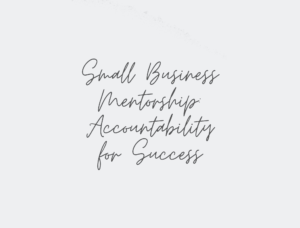Introduction
In today’s fast-paced, ever-changing employment environment, skill development is essential. This blog will discuss how skill improvement can boost your career, open doors, and ensure long-term success.
We will cover the importance of skill development, how to determine which skills to focus on, how to learn new skills, how to create a personal development plan, and how to overcome typical hurdles. We’ll conclude with real-life success tales to motivate you.
Read more about youth mentorship programs.
The Importance of Skill Development
Skill development means figuring out what skills you don’t have yet and trying to get them or improve the ones you already have. In today’s competitive job market, you must keep your skills current to stay employable.
Changing Job Market
- The job market is changing quickly because new technologies are making old jobs obsolete and creating new ones.
- Because of globalization, there is more competition and teamwork across countries, so professionals need to have a wide range of skills.
- Because of changes in the economy and the rise of new industries, professionals need to keep their skills up to date to get new jobs and take advantage of new possibilities.
Personal and Professional Growth
- Putting money into skill development makes people more confident, better at solving problems, and more open to change by encouraging a growth attitude.
- Professionally, it helps people advance in their careers by qualifying them for higher-level jobs and tasks.
- Getting new skills makes your job more secure because skilled workers are more valuable and less likely to be replaced.
- It might help you get paid more and be happier at work.
- Employers like creative workers who show they care about their jobs and the company’s success by constantly improving their skills.
Identifying Skills to Develop
Self-Assessment
Please fully evaluate your skills before you start to improve them. Look at your current skills, strengths, and places where you could do better. Some ways to do self-evaluation are:
- Reflective Journaling: Write about your work experiences regularly, focusing on the tasks you did well and those you found hard.
- Feedback from Others: Ask your coworkers, bosses, and teachers for feedback on your work to learn more about how you’re doing and what you can do better.
- Skill Assessment Tools: Use online tests and tools to look at your skills and see where to improve them.
Industry Trends
Knowing what skills are in demand is important by looking at how the business is changing. You can investigate these trends in the following ways:
- Professional Journals and Publications: Read papers and publications specific to your field to stay current on new technologies and trends.
- Industry Reports: Review studies from market research firms and industry groups that show what skills will be needed now and in the future.
- Networking: Go to conferences, webinars, and networking events in your field to learn about the newest trends and skills employers seek from pros and experts.
- Job Postings: Look at job postings in your field to see what skills companies usually seek.
Soft Skills vs. Hard Skills
It’s important to get good at both hard and soft skills:
Soft Skills
Regarding interpersonal and intrapersonal skills, “soft skills” are more subjective and harder to measure. These skills are crucial for leading, working as a team, and communicating well. Here are some examples of soft skills:
- Communication: Speaking and writing clearly and efficiently is part of being able to communicate.
- Leadership: Lead, inspire, and push others to reach their goals.
- Teamwork: Capacity to work collaboratively with others to accomplish shared goals.
- Problem-Solving: Capacity to develop effective solutions, identify problems, and analyze situations.
- Time Management: Capacity to effectively manage time, prioritize duties, and adhere to deadlines.
- Adaptability: Capacity to adapt to new circumstances, manage change, and maintain adaptability.
- Emotional Intelligence: The capacity to comprehend and regulate one’s own emotions, as well as to identify and influence the feelings of others.
- Critical Thinking: Capacity to make informed decisions, evaluate information objectively, and think logically.
- Conflict Resolution: Capacity to amicably and constructively resolve conflicts and disagreements.
- Creativity: Can generate innovative concepts, think unconventionally, and approach problems in novel ways.
Hard Skills
Hard skills are specific abilities or information that can be taught and are easy to measure. People usually learn these skills in school, through training programs, or by doing them on the job. Here are some examples of hard skills:
- Technical Skills: Proficiency in particular software, instruments, or technologies (e.g., machinery operation, software applications, or programming languages).
- Certifications: Credentials that indicate proficiency in a specific field (e.g., Certified Public Accountant (CPA), Project Management Professional (PMP)).
- Language Proficiency: The capacity to read, write, and speak in additional languages pertinent to your industry (e.g., Mandarin for trade with China, Spanish for international business).
- Data Analysis: The capacity to interpret and analyze data using various tools, such as Excel, SQL, R, and Python.
- Financial Management: Understanding financial principles and practices, including budgeting, accounting, and financial reporting.
- Marketing Skills: Proficiency in marketing strategies and tools, including SEO, SEM, content marketing, and social media marketing.
- Engineering Skills: Technical expertise and abilities in engineering disciplines include civil, electrical, and mechanical engineering.
Your career will be more successful and well-rounded if you can identify and develop soft and physical skills.
Methods for Skill Development
- Formal Education: Sign up for degree programs or licenses to learn more and prove your skills. This structured method gives you credibility and chances to meet new people.
- Online Courses and Workshops: Use sites like Coursera, Udemy, and LinkedIn Learning to learn at your own pace and in your own time. Most of the time, these classes are cheaper than regular schooling and cover a lot of different subjects.
- On-the-Job Training: You can get real-world experience by taking on new tasks, job training, or working on special projects. This method lets you use skills specific to your job immediately.
- Mentorship and Networking: Get advice from professionals with more experience and grow your career network. Mentors give you personalized advice, and networking opens new ideas and chances for you.
- Reading and Research: Read books, papers, and journals about your field regularly to stay current on the latest trends and best practices.
- Professional Organizations: You can access resources, events, and chances to meet other professionals by joining a professional group.
- Volunteering: Help with projects or groups that interest you to learn new skills and support a cause you care about.
- Self-Study: You can keep learning at your own pace using free workshops, podcasts, and online lessons.
Combining these methods allows you to make a well-rounded and effective skill-building plan that fits your job goals.
Creating a Personal Development Plan
- Setting SMART Goals: To make clear and useful goals, use the SMART guidelines. To ensure goals are clear and achievable, they should be specific, measurable, relevant, and time-bound.
- Identify Skills to Develop: Self-evaluation and study of industry trends can help you determine which skills are most important for your career growth.
- Create a Timeline: Make a schedule with due dates for each goal and break down bigger goals into smaller jobs you can handle.
- List Resources: Find things that can help you reach your goals, like classes, books, teachers, or chances to learn on the job.
- Allocate Time and Effort: Set aside regular times to work on your skills to ensure you keep progressing.
- Seek Support: Talk to mentors, coworkers, or business networks for help.
- Tracking Progress: Use tools such as progress journals, digital apps (Trello, Asana), and regular reviews to keep track of your work and make any necessary changes.
- Performance Metrics: Set clear goals for measuring your progress, like the percentage of people who finish a course, the quality of their comments, or the addition of new duties at work.
You can successfully learn the skills you need to advance your career by making a detailed action plan, setting SMART goals, and regularly checking in on your progress.
Overcoming Challenges
Time Management
Balancing learning new skills with other obligations can be hard, but managing your time well can help. Here are some ideas:
- Prioritize Tasks: Identify the most important jobs and do them first. List things you must do to stay on top of your tasks.
- Schedule Learning Time: Set aside specific times to work on your skills daily or weekly. This is the only time that can be used.
- Use Time-Blocking: Set aside different amounts of time for other tasks throughout the day. This can help you concentrate and not do too many things at once.
- Eliminate Distractions: Make a good learning space by eliminating as many distractions as possible. Turn off alerts and tell people around you what you expect from them.
Staying Motivated
Keeping yourself motivated over time is very important for steady skill growth. Here are some ways to keep yourself going:
- Set Milestones: Split your big goals up into smaller ones. To keep your sense of growth, celebrate each success.
- Reward Yourself: Reward yourself when you meet important goals. This could be a small treat, a break, or something fun.
- Find a Study Buddy: Find someone to work with who shares your goals. You can hold each other responsible and keep each other going.
- Visualize Success: It’s important to remember your end goal and remember how it will help your job.
Dealing with Setbacks
You will always have setbacks, but how you deal with them can make a difference. To stay strong, do these things:
- Stay Positive: Instead of focusing on the bad things that happened, think about what you’ve learned from them. Please take it as a chance to get better.
- Adjust Your Plan: Look over your goals and plan of action again. Don’t be too hard on yourself; just make the necessary changes to stay on track.
- Seek Support: Talk to your boss, coworkers, or friends about your problems. They can give you help and support.
- Practice Self-Care: Pay attention to your mental and physical health. Getting enough sleep, working out regularly, and learning to relax can all help you deal with stress.
You can continue your skill-building journey even when things go wrong if you stay focused, manage your time well, and deal with setbacks with resilience.
Conclusion
Career advancement requires skill development. Understand the value of skill development, choose the correct talents, and explore different learning methods to establish a solid personal growth plan. Time management, motivation, and overcoming failures require determination and resilience. You can evolve and adapt to the changing job market with the appropriate attitude to ensure career success. Develop your skills today to reach your potential.





